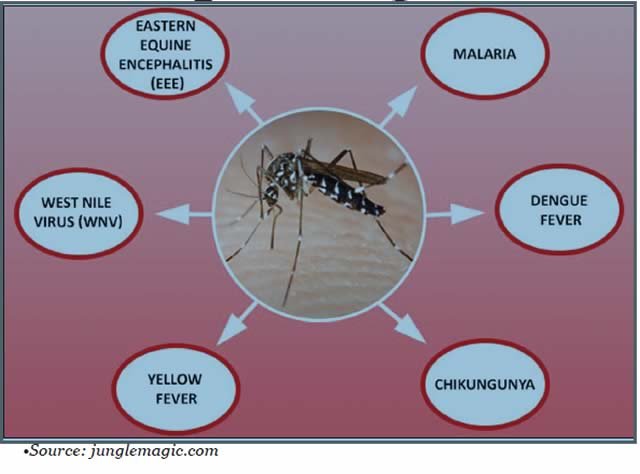
Introduction to Mosquitoes and Diseases
Overview of Mosquitoes
Mosquitoes are small flying insects that are commonly found in various parts of the world. They are known for their itchy bites and the buzzing sound they make. Female mosquitoes feed on blood, which is essential for their reproduction process. There are over 3,500 species of mosquitoes, with different species being prevalent in different regions.
Impact of Mosquito-Borne Diseases
Mosquitoes are not just annoying pests; they are also carriers of various deadly diseases. Some of the most common mosquito-borne diseases include malaria, dengue fever, Zika virus, and West Nile virus. These diseases have a significant impact on public health, especially in tropical and subtropical regions. It is crucial to control mosquito populations and take preventive measures to reduce the spread of these diseases and protect vulnerable populations. Understanding the relationship between mosquitoes and diseases is essential for effective prevention and control strategies.
History of Mosquito-Borne Diseases
Major Epidemics Caused by Mosquitoes
Throughout history, mosquitoes have been responsible for some of the most devastating epidemics known to humankind. Malaria, one of the oldest mosquito-borne diseases, has plagued societies for centuries, affecting millions of people worldwide. The spread of yellow fever, another deadly disease transmitted by mosquitoes, led to widespread outbreaks and high mortality rates, particularly in tropical regions. These major epidemics have shaped public health strategies and influenced our understanding of vector-borne diseases.
Scientific Discoveries in Understanding Mosquito-Borne Diseases
Scientific research has played a crucial role in unraveling the complexities of mosquito-borne diseases. From identifying the specific species of mosquitoes responsible for transmitting diseases to studying the pathogens carried by these insects, researchers have made significant strides in understanding the mechanisms of transmission. Breakthroughs in genetic research and advancements in mosquito control methods have paved the way for developing effective prevention and treatment strategies. By delving into the intricate relationship between mosquitoes and diseases, scientists continue to uncover valuable insights that are instrumental in combating these public health threats.
Mosquito Species and Disease Transmission
Common Mosquito Species Transmitting Diseases
When it comes to mosquito-borne diseases, various mosquito species play a vital role in transmitting illnesses to humans. Some of the most common culprits include Aedes aegypti, responsible for spreading diseases like dengue fever, Zika virus, and chikungunya. Anopheles mosquitoes are infamous for transmitting malaria, while Culex species can carry diseases such as West Nile virus and Japanese encephalitis. Understanding the specific mosquito species involved in disease transmission is crucial for implementing targeted control strategies and preventing outbreaks.
Mechanisms of Disease Transmission
The transmission of diseases by mosquitoes involves complex mechanisms that scientists have been diligently studying. When a female mosquito feeds on an infected host, it can acquire pathogens like parasites or viruses. Subsequently, when the mosquito bites a healthy individual, it can transmit these disease-causing agents through its saliva. This intricate process highlights the importance of mosquito control measures, such as insecticide spraying and environmental management, in reducing disease transmission. By comprehending the intricacies of how diseases are spread through mosquitoes, researchers can develop more effective preventive measures to safeguard public health.
Effects of Mosquito-Borne Diseases on Human Health
Common Symptoms of Mosquito-Borne Diseases
Mosquito-borne diseases can lead to a variety of symptoms, depending on the specific illness contracted. Common symptoms include fever, body aches, rash, joint pain, and fatigue. In more severe cases, these diseases can cause complications such as organ failure, neurological issues, and even death. It is essential to seek medical attention promptly if you experience any of these symptoms after being bitten by a mosquito.
Long-Term Health Effects
The impact of mosquito-borne diseases on human health can extend beyond the initial period of infection. Some illnesses, like malaria, can lead to long-term health effects such as anemia, chronic pain, cognitive impairment, and in severe cases, disability. Moreover, repeated infections with mosquito-borne diseases can weaken the immune system over time, making individuals more susceptible to other infections. Long-term health effects highlight the importance of not only treating these diseases promptly but also implementing preventive measures to control mosquito populations and reduce the risk of transmission.
Also Read: Understanding the Dangers of Mosquito Diseases: Prevention..
Prevention and Control of Mosquito-Borne Diseases
Mosquito Control Methods
Preventing and controlling mosquito-borne diseases requires a multi-faceted approach that includes managing mosquito populations. This can be achieved through various methods such as eliminating standing water where mosquitoes breed, using larvicides to target mosquito larvae, and employing insecticides to reduce adult mosquito populations. Additionally, environmental control measures like draining wetlands and maintaining proper sanitation can also help in controlling mosquito populations and reducing the risk of disease transmission.
Personal Protection Measures
Individuals can also protect themselves from mosquito bites by taking personal protection measures. This includes wearing long-sleeved clothing, using insect repellent, and ensuring windows and doors have screens to prevent mosquitoes from entering living spaces. Moreover, avoiding outdoor activities during peak mosquito feeding times, such as dawn and dusk, can help reduce the chances of being bitten. By combining personal protection measures with effective mosquito control methods, individuals can significantly reduce the risk of contracting mosquito-borne diseases and safeguard their health.
